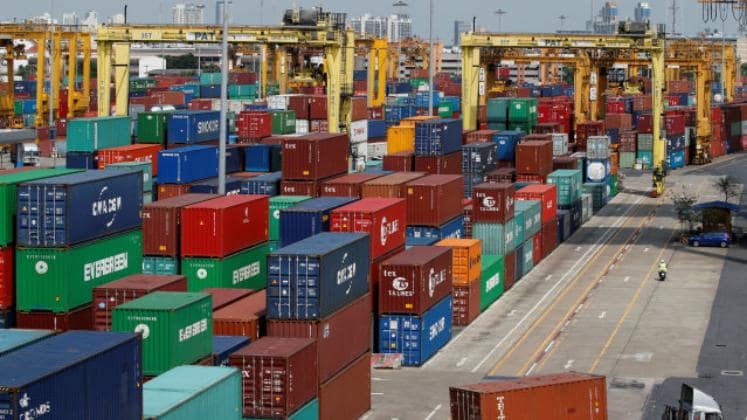
When Bangladesh moves to graduate from the least developed nation category in 2026, it will ask the World Bank (WB) to continue its technical assistance in export diversification, competitiveness building, investment growth, and trade logistics.
“World Bank may also assist the country’s initiatives aimed at enhancing human capital and institutional capacity development to facilitate a seamless transition,” says a brief prepared for Finance Minister AH Mahmood Ali for the spring meetings of the World Bank and International Monetary Fund in Washington on 15th-20th April.
The Finance Ministry believes Bangladesh’s external debt lies far below the threshold level and the Government has ‘adequate repayment capability’.
As mentioned in the briefs for the lenders, the Government is still wary of the exchange rate risk resulting from the local currency’s rise, which will determine the country’s debt sustainability strengths and future hazards.
The macroeconomic issues that have delayed the pace of development, like rising inflation and the taka’s devaluation versus major trade currencies, will be discussed by the finance minister with the two international lenders.
According to the ministry’s papers, the GDP growth target has been established at 6.5 per cent to keep inflation within the planned range of 7.5 per cent for FY ’24, taking into account recent macroeconomic developments and obstacles.
According to the World Bank’s most recent development report, five lakh people may again fall into extreme poverty as high inflation would impact consumption, causing Bangladesh’s economic growth to drop to 5.6 per cent this year before gradually rising to above 6 per cent.
9.6 per cent annual inflation can continue until dropping to 8.5 per cent in the following fiscal year.
Bangladesh has issued numerous briefs outlining its long-term strategic objectives and plans for adapting to climate change to identify future investment needs and the areas that development partners should fund.
Bangladesh’s economic problems, including growing inflation, external imbalances, and weaknesses in the financial sector, are acknowledged in one of the documents. According to this, Bangladesh must take decisive and swift action to maintain its current track and meet its long-term objectives.
To attract private investment and boost corporate competitiveness, Bangladesh must expand human capital, create jobs, and construct efficient infrastructure if it hopes to realise its goal of becoming an upper-middle-income nation by 2031.
It also enumerates development priorities, including boosting public institutions to spur growth, expanding exports beyond ready-made clothing, and improving urbanisation sustainability.






